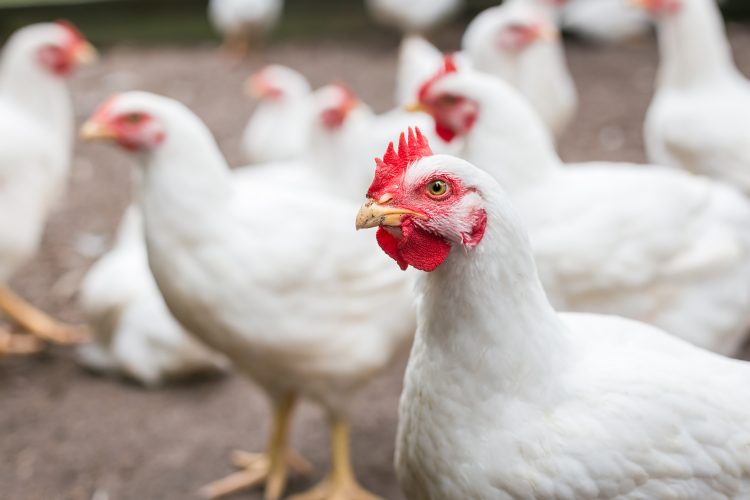Could bacteriophages prevent Salmonella in broiler chickens?
Posted: 20 July 2021 | Arianna Dinelli | No comments yet
Bacteriophages could provide the answer to one of the world’s biggest food safety concerns, that of Salmonella in chickens, according to researchers from the University of Leicester.


A collaborative research project by AB Agri and the University of Leicester found that Salmonella colonisation in broiler chickens could be tackled by bacteriophage – the natural viruses of bacteria – in animal feed.
Tests demonstrate a low dose of phage reduced the Salmonella count to below detection limits – a result that could have far-reaching impact in poultry production and food hygiene.
“The results highlight phages as a promising tool to target bacterial infections in poultry,” said Martha R J Clokie, Professor of Microbiology at the University of Leicester.
“According to the World Health Organization almost one in 10 people fall ill and 33 million of healthy life years are lost every year. This study shows that phage may be a useful weapon against this challenge, helping our industry produce safer food,” said Nell Masey O’Neill, AB Agri’s Director of Innovation. He further commented on how the industry “has been responsible by taking growth-promoting antibiotics out of poultry diets,” which has led to gut health issues.
“Assessing the efficacy of bacteriophage therapy to reduce Salmonella colonisation in broiler chickens” will be shared at the Poultry Science Association meeting by Dr Anisha Thanki from Leicester University’s Department of Genetics and Genome Biology.
Bacteriophages have long been held as potential food safety solution, with researchers around the globe working to establish where and how they can be used to make our food safer.
Earlier this year, scientists from Harper Adams University revealed they were looking into whether bacteriophages could protect consumers of chesses made from raw cows’ milk popular in Egypt and neighbouring countries. It’s thought that the addition of bacteriophages could prevent consumers becoming infected with pathogenic bacteria, especially when said cheeses are stored in potentially unhygienic conditions.









